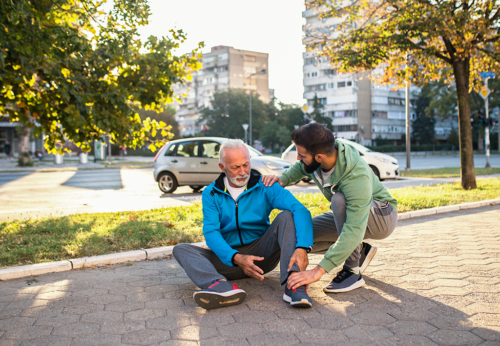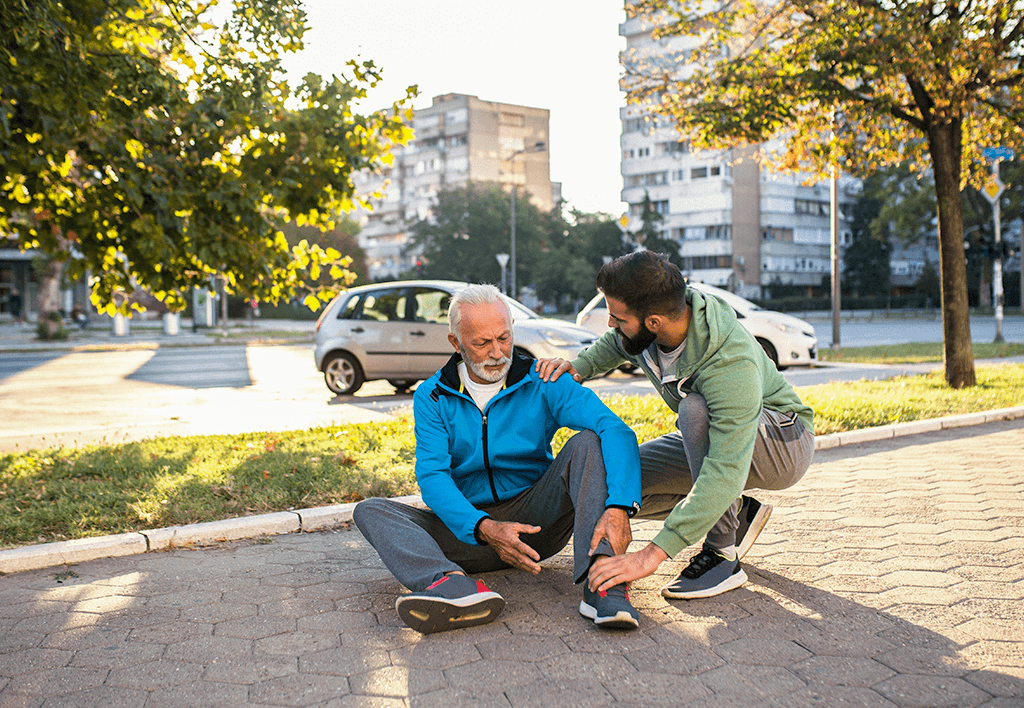
Florida premises liability laws outline a landowner’s duty of care toward individuals when they are on their property. But what does it mean to be a visitor and how might that affect an injury claim?
Well, to answer that, we’ll have to dive into Florida premises liability law. There are three types of visitor classifications that are relevant to determining liability in these cases:
- Invitees
- Licensees
- Trespassers
Read on to learn more about how your visitor status on someone else’s property can affect your premises liability claim and how a slip and fall attorney can help you if you get injured.
Invitees, Licensees, and Trespassers | How Your Status Can Affect Your Claim
Invitees
Landowners have the greatest duty of care for individuals who fall under this visitor status, according to Florida law. An invitee may be a person who is a member of the public invited to use a public place, such as a park or hospital. They may also be a business invitee who enters the property for business dealings. And of course, an invitee may be a guest a property owner invited into their home.
Licensees
A licensee can be invited or uninvited. An invited licensee might be someone like a third-party vendor that provides services to an individual or business. This could include plumbers, electricians or other workers that help maintain the premises. Property owners have the same duty of care toward these invited licensees as invitees. Then there are uninvited licensees. An example of an uninvited licensee is a salesman who visits a home or business. Because the property owner not invite this person, their duty of care is to not intentionally harm them.
Trespassers
A trespasser is an unwanted individual at a home or business property. A landowner cannot intentionally harm a trespasser unless the trespasser is posing a serious threat to someone else on the property. But a trespasser does not have the same expectation of landowner protection as an invitee or licensee.
OUTLINING A LANDOWNER’S DUTY OF CARE
Florida law outlines several precautions that a landowner must take to protect invitees and licensees.
- First, landowners must maintain the premises so that it is reasonably safe for visitors. When maintaining the area, landowners should also protect visitors from crimes as best as they can.
- Secondly, for any dangers that the landowner cannot immediately remedy, the owner must warn visitors of the dangers present. This can be through signage or verbally instructing visitors to watch their step or use extreme care when entering the facility.
As explained above, the visitor’s status will determine the landowner’s duty of care toward them. Individuals wondering whether they should pursue a premises liability case should discuss the reason they were on the property with an experienced Miami premises liability attorney.
WHEN A VICTIM OR LANDOWNDER CONTRIBUTES TO AN INJURY
Even if you are an invitee or welcomed licensee, you’re not guaranteed protection if you’re injured on someone else’s property. Another important aspect of a Miami premises liability case is whether the victim acted safely and appropriately given the circumstances.
For example, if a hazard is apparent and a reasonable person would be able to recognize that hazard, then it might be determined that the victim was partially at-fault for the accident.
Another determining factor is whether the landowner knew about the hazard or should have known about it. Consider, for example, a spill in a grocery store. Immediately following the spill, someone could get injured by slipping and falling on the hazard.
If there was not a reasonable time for the grocery store staff to respond, their liability might be limited. The landowner (or property owner) might not be negligent in a case like this because they didn’t know there was a hazard and had no time to be made aware of such a hazard.
When it comes to how liability determines damages, Florida follows a comparative negligence system. According to the state’s law, even if the injured party is partially at fault for their injury, they may still be able to collect compensation for their losses, but their damages will be reduced by their percentage of fault as determined by the court.
GET OUR LEGAL INSIGHTS FOR YOUR FLORIDA PREMISES LIABILITY CASE
Premises liability cases are complicated. Many factors go into determining who was at fault for the incident, and it’s not always easy for victims to understand who might be held liable for their damages. And in some cases, an accident is just that—a terrible incident that was both unforeseeable and unpreventable.
It takes a deep knowledge of the law to know how a visitor’s status plays a role in a premises liability case. Led by Scott Aigen, Esq., Aigen Injury Law is a Miami personal injury law firm with in-depth knowledge across various facets of state and federal laws.
If you’ve sustained injuries while visiting someone else’s property, contact us today for a free consultation. We’ll go over the facts of your case and can help you determine if you have a claim and who might be liable for your injury-related damages.
Originally published March 30, 2022. Updated February 6, 2024.
